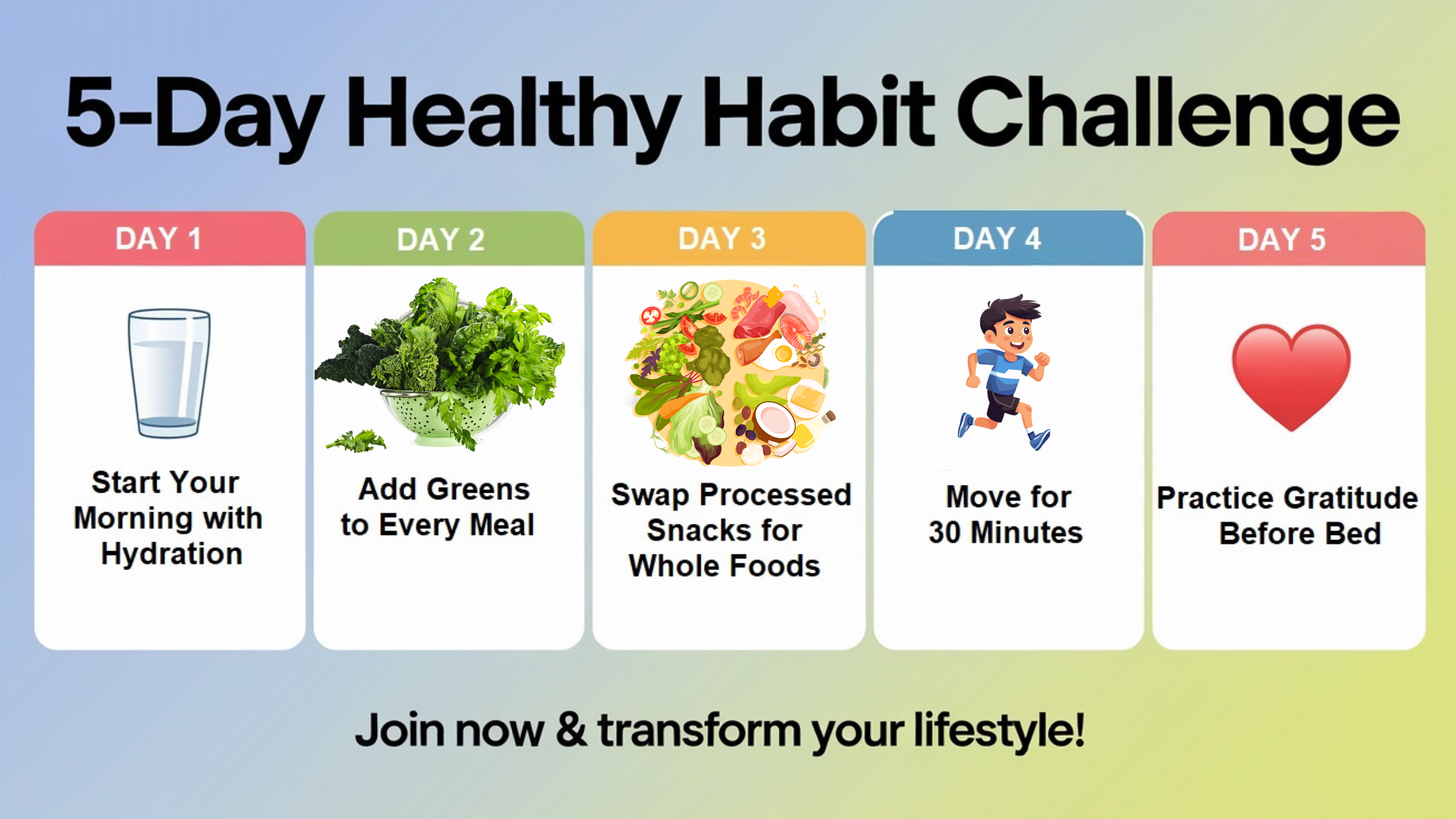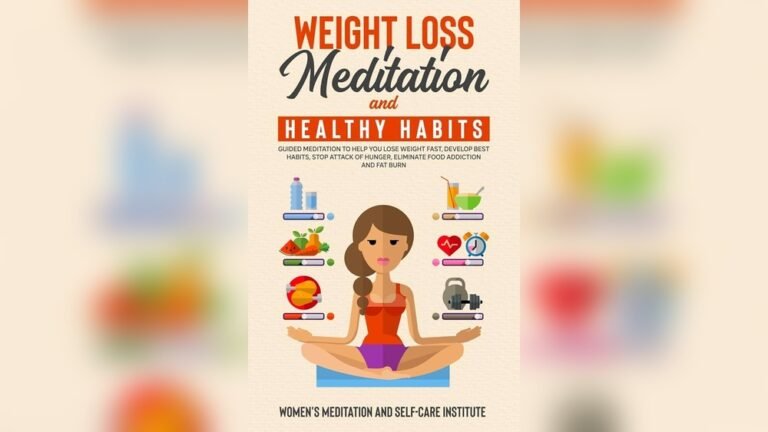Are you tired of trying countless diets and workouts without seeing lasting results? Losing weight doesn’t have to be complicated or overwhelming.
The secret lies in adopting simple, effective habits that fit into your daily life and keep you motivated. You’ll discover the best habits for losing weight that anyone can start today. These habits are designed to help you burn fat, boost your energy, and feel great—all without drastic changes or quick fixes.
Keep reading, and take the first step toward a healthier, happier you.

Credit: www.amazon.com
Daily Water Intake
Water plays a vital role in weight loss. Drinking enough water daily helps the body function well. It supports digestion, boosts metabolism, and helps control hunger. Staying hydrated keeps energy levels up and aids in burning calories. Many people forget to drink enough water, which can slow weight loss progress.
Drink Before Noon
Start your day with water. Drinking one-third of your daily water intake before noon can jumpstart metabolism. It also helps flush out toxins and prepares your body for meals. A glass of water first thing in the morning wakes up your organs. Keep a bottle nearby and sip water regularly during the morning hours.
Hydration And Appetite
Drinking water can reduce hunger. Sometimes, thirst feels like hunger. Drinking a glass before meals can lower calorie intake. Water fills the stomach, helping you feel full faster. This simple habit can prevent overeating and snacking between meals. Staying hydrated also supports digestion and nutrient absorption, which are key for weight loss.
Effective Workout Routines
Effective workout routines play a vital role in losing weight. They boost metabolism and burn calories efficiently. A good routine blends different types of exercises to target fat loss and muscle gain. Consistency and variety keep the body challenged and prevent boredom. The following sections explain key workout strategies for weight loss.
Circuit Training Structure
Circuit training involves performing several exercises back to back with minimal rest. It combines strength and cardio to maximize calorie burn. Typically, a circuit has three to five exercises. Each targets different muscle groups to avoid fatigue. Repeat the circuit two to four times for a complete session. This structure saves time and keeps your heart rate high.
Sample Weekly Schedule
A balanced weekly workout plan helps maintain steady progress. For example:
- Monday: Upper body strength training like push-ups and dumbbell presses
- Wednesday: Lower body strength training including squats and lunges
- Thursday: Active rest with light yoga or walking
- Friday: Cardio or High-Intensity Interval Training (HIIT)
- Saturday: Longer cardio session or enjoyable activity such as swimming
- Sunday: Rest or active recovery
This schedule mixes strength, cardio, and rest for balanced fitness.
Cardio And Strength Mix
Combining cardio and strength training boosts fat loss and muscle tone. Cardio burns calories and improves heart health. Strength training builds muscle, which increases metabolism. Examples include running, cycling, plus squats and push-ups. Alternate between these exercises or combine them in circuits. This mix keeps workouts effective and engaging.
Strength And Flexibility
Strength and flexibility are key habits for effective weight loss. Building muscle boosts metabolism, helping burn more calories. Flexibility improves movement and reduces injury risk. Together, they support a balanced fitness routine.
Muscle Building Exercises
Muscle building exercises increase lean body mass. Squats, lunges, push-ups, and deadlifts are great choices. These moves target large muscle groups for maximum calorie burn. Strong muscles improve posture and daily function. Regular strength training helps maintain weight loss over time.
Yoga For Mobility
Yoga enhances flexibility and joint mobility. It reduces muscle tightness and improves circulation. Gentle stretching supports recovery from intense workouts. Yoga also lowers stress, which can affect weight. Practicing yoga regularly promotes balance and body awareness.

Credit: mapmygenome.in
Consistent Exercise Habits
Building consistent exercise habits plays a crucial role in losing weight effectively. Regular physical activity helps burn calories, boosts metabolism, and improves overall health. Sticking to a routine makes it easier to see progress and maintain motivation.
Creating habits around exercise is about making it part of daily life. Finding ways to enjoy movement encourages regular participation. Consistency beats intensity for long-term success.
Enjoyable Activities
Choose exercises that bring joy and fit your lifestyle. Dancing, walking, swimming, or biking can all be fun options. Enjoyment increases the chance of sticking with workouts over time.
Mix different activities to keep exercise fresh and exciting. This variety helps prevent boredom and reduces the risk of injury. When workouts feel like play, they become easier to maintain.
Long-term Commitment
Think of exercise as a lifelong habit, not a quick fix. Set realistic goals and create a schedule that fits your daily routine. Consistency over months and years leads to lasting weight loss.
Start with small, manageable workouts and gradually increase intensity. Celebrate progress, no matter how small, to stay motivated. Long-term commitment turns exercise into a natural part of life.
Meal Planning Strategies
Meal planning is a key habit for losing weight. It helps control what and how much you eat. Planning meals reduces impulsive eating and supports healthier choices. It saves time and cuts down stress around food. This section covers simple strategies to improve your meal planning skills.
Mindful Eating Techniques
Mindful eating means paying full attention to your food. Notice the taste, texture, and smell of each bite. Eat slowly and avoid distractions like TV or phones. This helps you enjoy your food more and recognize when you feel full. Mindful eating reduces overeating and supports weight loss.
Portion Control Tips
Portion control helps manage calorie intake without feeling hungry. Use smaller plates to make servings look bigger. Measure portions with cups or a food scale. Fill half your plate with vegetables and the rest with proteins and grains. Avoid second servings and eat only until you feel satisfied, not stuffed.
Nutritious Food Choices
Choosing nutritious foods plays a key role in losing weight effectively. Eating the right foods fuels your body and controls hunger. Nutritious choices help keep energy steady and reduce cravings. Focus on whole foods that provide vitamins, minerals, and fiber.
Smart food choices support fat loss and muscle growth. They also improve digestion and overall health. Avoid empty calories that add weight without benefits. Prioritize foods that satisfy and nourish at the same time.
High Fiber Fruits And Vegetables
Fruits and vegetables rich in fiber help you feel full longer. Fiber slows digestion and reduces hunger pangs. Examples include apples, berries, carrots, and broccoli. These foods have low calories but high volume. Eating more fiber supports weight loss and digestive health.
Lean Protein Sources
Protein is essential for building muscle and burning fat. Choose lean options like chicken breast, turkey, fish, and beans. Protein boosts metabolism and keeps you full between meals. Including protein at every meal can reduce overeating and aid weight loss.
Limiting Processed Foods
Processed foods often contain added sugars, unhealthy fats, and salt. These can increase calorie intake without providing nutrients. Avoid snacks, fast food, and sugary drinks as much as possible. Focus on fresh, whole foods to improve weight loss results.
Sleep And Weight Management
Sleep plays a vital role in managing weight effectively. Without enough rest, the body struggles to regulate hunger and energy use. Good sleep habits support healthy weight loss and prevent unwanted weight gain. Understanding the connection between sleep and weight helps create better routines for lasting results.
Importance Of Quality Sleep
Quality sleep helps the body repair and recharge each night. It balances hormones that control appetite, reducing cravings for unhealthy foods. Poor sleep increases hunger hormone levels, causing overeating. Restful sleep improves mood and energy, making physical activity easier. Aim for 7 to 9 hours of uninterrupted sleep every night.
Sleep And Metabolism
Sleep affects how the body processes calories and fat. Lack of sleep slows down metabolism, making it harder to burn calories. It also reduces insulin sensitivity, which can lead to fat storage. Good sleep helps maintain steady blood sugar levels and supports fat loss. Prioritize sleep as part of your weight management plan for better results.

Credit: healthyhappysmart.com
Additional Lifestyle Habits
Weight loss success depends on more than just diet and exercise. Small changes in daily habits can make a big difference. These additional lifestyle habits support your weight loss efforts and improve overall health. They help control hunger, boost metabolism, and reduce harmful stress effects.
Meal Timing
When you eat affects your body’s ability to burn fat. Eating meals at regular times can help control hunger and prevent overeating. Try to avoid late-night snacks, as your metabolism slows down in the evening. Aim to finish your last meal at least two hours before bedtime. Spacing meals evenly throughout the day keeps energy steady and reduces cravings.
Stress Management
Stress triggers the release of hormones that can increase fat storage. Managing stress is vital for weight loss. Simple techniques like deep breathing, meditation, or taking short breaks help lower stress levels. Regular physical activity also reduces stress and improves mood. Sleep quality improves when stress is low, supporting better weight control.
Conclusion
Adopting healthy habits helps you lose weight steadily and safely. Drink enough water and eat nutrient-rich foods every day. Exercise regularly with strength and cardio workouts. Plan meals and eat slowly to avoid overeating. Rest well to support your body’s recovery.
Small changes add up to big results over time. Stay patient and consistent for lasting success. Your journey to better health begins with simple steps.


